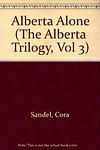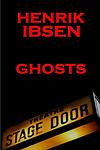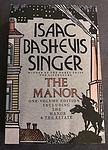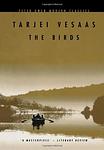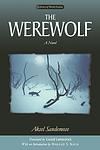The Greatest Polish, Norwegian "Fiction" Books Since 1900
Click to learn how this list is calculated.
This list represents a comprehensive and trusted collection of the greatest books. Developed through a specialized algorithm, it brings together 300 'best of' book lists to form a definitive guide to the world's most acclaimed books. For those interested in how these books are chosen, additional details can be found on the rankings page.
Genres
Countries
Date Range
Reading Statistics
Click the button below to see how many of these books you've read!
Download
If you're interested in downloading this list as a CSV file for use in a spreadsheet application, you can easily do so by clicking the button below. Please note that to ensure a manageable file size and faster download, the CSV will include details for only the first 500 books.
Download-
1. Kristin Lavransdatter by Sigrid Undset
Set in 14th century Norway, "Kristin Lavransdatter" follows the life of its titular character from her childhood, through her tumultuous and passionate marriage to Erlend Nikulausson, to her life as a mother and eventual widow. The narrative explores Kristin's struggles with faith, societal expectations, and personal desires, offering a vivid portrayal of medieval Scandinavian life along the way. Despite the many hardships she faces, Kristin remains a strong and resilient woman, embodying the spirit of her time.
-
2. Ferdydurke by Witold Gombrowicz
"Ferdydurke" is a satirical novel that explores the themes of maturity, identity, and societal norms. The protagonist, a thirty-year-old writer, is forcibly regressed by two professors back to his adolescence and placed in a school setting. The narrative critiques the artificiality of adulthood and the pressure of societal expectations, while also exploring the struggle for self-expression and individuality. The book is known for its absurdist humor and its examination of the human condition.
-
3. Solaris by Stanislaw Lem
The novel is a psychological exploration of human limitations and failures set against the backdrop of space exploration. When a psychologist arrives at a research station orbiting a distant planet covered entirely by a sentient ocean, he discovers the crew in disarray, haunted by physical manifestations of their subconscious fears and desires. As he grapples with the ocean's inscrutable nature and its unsettling ability to materialize human thoughts, he is forced to confront his own guilt and regret, embodied by the apparition of his deceased wife. The story is a philosophical meditation on the impossibility of truly understanding alien intelligence and the painful isolation of the human condition.
-
4. Growth of the Soil by Knut Hamsun
"Growth of the Soil" is a novel that follows the life of a man who leaves his nomadic lifestyle to become a pioneer farmer in the Norwegian wilderness. The narrative traces his journey from solitude to building a family and a thriving farm, showcasing his deep connection with the land and the cyclical nature of life. The book also explores the tension between traditional rural life and modernity, as external forces such as industrialization and societal change begin to impact the protagonist's simple existence.
-
5. Sophie's World: A Novel About the History of Philosophy by Jostein Gaarder
"Sophie's World" is a unique and intriguing novel that intertwines the narrative of a young girl named Sophie with a comprehensive history of Western philosophy. Sophie begins receiving mysterious letters from an unknown philosopher and gradually becomes engrossed in the world of philosophy. The book uses Sophie's journey to explore philosophical concepts and theories, from ancient to modern times, in an accessible and engaging way, making it an excellent introduction to the subject for readers of all ages.
-
6. House with the Blind Glass Windows by Herbjørg Wassmo
"House with the Blind Glass Windows" is a poignant tale of a young girl growing up in Norway during the 1950s. The narrative explores her struggles with family secrets, abuse, and the oppressive nature of her small, rural community. The protagonist's journey towards understanding and overcoming her traumatic past forms the crux of the story, which is set against the backdrop of post-war Europe.
-
7. The Alberta Trilogy by Cora Sandel
"The Alberta Trilogy" is a series of three novels that follow the life of Alberta Selmer, a young woman growing up in a small Norwegian town in the early 20th century. The trilogy explores Alberta's struggle with societal expectations, her pursuit of independence and her journey to becoming a painter. Set against the backdrop of a harsh Norwegian landscape, the series highlights the protagonist's struggle with poverty, her relationships, and her exploration of her identity and place in the world.
-
8. The Painted Bird by Jerzy Kosinski
"The Painted Bird" is a dark and harrowing novel set in Eastern Europe during World War II. The story follows a young, unnamed boy of unknown ethnicity who is sent by his parents to live in a remote village for safety. However, he is instead subjected to brutal violence, abuse, and superstition by the superstitious peasants. The book explores themes of survival, human cruelty, and the loss of innocence in the face of war and hatred.
-
9. This Way for the Gas, Ladies and Gentlemen by Tadeusz Borowski
This book is a collection of short stories based on the author's experiences as a prisoner in Auschwitz during the Holocaust. Each story provides a harrowing, yet matter-of-fact, account of life in the concentration camp, from the brutal work details to the constant threat of death. The author's stark and unflinching portrayal of the horrors of Auschwitz serves as a powerful testament to the human capacity for survival and resilience in the face of unimaginable cruelty.
-
10. The Magician of Lublin by Isaac Bashevis Singer
This novel tells the story of Yasha Mazur, a talented and renowned 19th-century Jewish magician living in Poland. Yasha is a complex character, torn between his own desires and the expectations of his religious community. He leads a double life, juggling his career, his marriage, and his multiple affairs. As he grapples with his conflicting identities, Yasha is forced to confront his own moral failings and the consequences of his actions. His journey is one of self-discovery and redemption, offering a nuanced exploration of faith, love, and the human condition.
-
11. Gimpel the Fool by Isaac B Singer
"Gimpel the Fool" is a collection of short stories that portray the life of Gimpel, a simple baker who is often deceived by the people in his town. Despite the continuous deceit, Gimpel maintains his faith in humanity and never seeks revenge. Throughout the stories, the protagonist's innocence and naivety are contrasted with the harsh realities of the world, exploring themes of faith, forgiveness, and the inherent goodness of people.
-
12. The Street of Crocodiles by Bruno Schulz
"The Street of Crocodiles" is a collection of short stories set in a small town in Poland, illustrating the author's unique perspective on reality. The book portrays the narrator's father's eccentricities and his vivid, often disturbing, imagination. The stories are filled with bizarre, dreamlike imagery and metaphors, presenting a surreal and grotesque view of everyday life. The book is a profound exploration of human nature, memory, and the power of imagination.
-
13. Giants in the Earth by Ole Edvart Rolvaag
"Giants in the Earth" is a historical novel that chronicles the story of a Norwegian pioneer family's struggles with the land and the elements of the Dakota Territory as they try to make a new life in America. It is a profound and accurate depiction of the trials, tribulations, successes, and failures of pioneer life, emphasizing the harsh realities of adapting to a new environment. The novel explores themes of man versus nature, cultural displacement, and the pursuit of the American Dream.
-
14. The Futurological Congress by Stanislaw Lem
In a dystopian future, the protagonist attends a scientific conference where he is exposed to a new hallucinogenic drug that transports him to a surreal and chaotic world. As he navigates through this bizarre reality, he becomes entangled in a conspiracy involving mind-altering technology, political manipulation, and the struggle for power. This satirical novel explores themes of reality, identity, and the dangers of unchecked technological advancements.
-
15. Satan In Goray by Isaac Bashevis Singer
Set in the 17th century, the novel explores the impact of false messianic fervor on the Jewish community of Goray, a small Polish town. After the devastating Chmielnicki massacres, the traumatized survivors find themselves drawn to the charismatic but ultimately destructive figure of Sabbatai Zevi, who claims to be the long-awaited Messiah. As the community becomes increasingly divided between believers and skeptics, the narrative delves into themes of faith, madness, and the desperate need for redemption, painting a vivid picture of a society on the brink of collapse under the weight of its own expectations and desires.
-
16. Selected Plays of Henrick Ibsen by Henrik Ibsen
This compilation includes a selection of plays by a renowned Norwegian playwright, who is often referred to as the father of realism. The collection showcases his talent for exploring complex human emotions, societal expectations, and moral dilemmas. The plays often feature strong female characters, a rarity for the time, and challenge the norms of the 19th-century society, making them timeless and relevant even today.
-
17. The Manor by Isaac Bashevis Singer
"The Manor" depicts the complex interplay between Jews and Polish nobility in 19th century Poland. The narrative focuses on the lives of two Jewish families, the Kalinowskis and the Dembowskis, who are tied together by marriage. As they navigate the political and social changes of the time, the characters grapple with issues of faith, tradition, assimilation and the struggle for survival. The book provides a vivid portrayal of Jewish life in Poland during a period of significant change and upheaval.
-
18. The Birds by Tarjei Vesaas
"The Birds" is a poignant story about Mattis, a mentally challenged man living in rural Norway who struggles to fit into society. He lives with his sister, who is his only caretaker and connection to the outside world. Mattis's life changes when he becomes fascinated by a pair of rare birds that decide to nest near his home. The arrival of these birds and a subsequent encounter with a lumberjack disrupt the quiet routine of his life, leading to a series of events that force him to grapple with his place in the world.
-
19. Ashes and Diamonds by Jerzy Andrzejewski
Set at the end of World War II, the book explores the chaotic and morally complex time in Poland as the country transitions from war to peace. The narrative focuses on a young Home Army soldier tasked with assassinating a communist leader. As he grapples with his mission, he falls in love, further complicating his loyalties and convictions. The story provides a deep examination of the personal and political turmoil experienced during this historical period.
-
20. Insatiability by Stanisław Ignacy Witkiewicz
The novel is a dystopian narrative set in a future where a new Asian empire has conquered Europe. The story follows a young Polish man who, while initially indulging in hedonistic pursuits, becomes increasingly disillusioned with the world around him. As the new empire introduces a mysterious substance known as Murti-Bing pills, which create a sense of contentment and indifference in the populace, the protagonist grapples with the loss of individuality and the erosion of human spirit in society. The narrative is a critique of totalitarian regimes and the dangers of mass conformity.
-
21. The Manor, The Estate, The Family Moskat by Isaac Bashevis Singer
The book is a sweeping saga that explores the multigenerational story of a Jewish family living in Poland from the late 19th century through the eve of World War II. It delves into the lives, loves, and losses of the family members as they navigate the changing social and political landscape. The narrative captures the tension between tradition and modernity, the struggle for survival amidst anti-Semitism, and the impact of historical events on personal identities and destinies. Through vivid characterizations and rich detail, the novel paints a portrait of a community and a way of life on the brink of profound change.
-
22. The Werewolf by Aksel Sandemose
"The Werewolf" is a psychological thriller set in a small Norwegian town where the residents are terrorized by a series of brutal murders. The protagonist, a young man, returns to his hometown after many years abroad and is soon suspected of being the werewolf behind the killings. As he seeks to clear his name, he must confront the town's dark past and its deeply ingrained superstitions. The book explores themes of fear, guilt, and the struggle between rationality and irrational beliefs.
-
23. Out Stealing Horses by Per Petterson
The novel is a poignant exploration of a man's relationship with his father and his own identity. Set in Norway, it follows the protagonist's decision to live in solitude after the death of his wife and sister. Through a series of flashbacks, he recalls his childhood, particularly the summer of 1948 when he lived with his father in the country. As he delves into his past, he uncovers his father's involvement in the resistance during World War II and the lasting impact it had on their relationship and his own life. The narrative intertwines the past and the present, reflecting on themes of loss, betrayal, and the complexity of human relationships.
-
24. Ashes by Stefan Zeromski
This novel is a poignant exploration of the Polish struggle for independence in the late 19th and early 20th centuries, focusing on the life and experiences of its protagonist, a Polish aristocrat. Set against the backdrop of the partitioned Poland, the narrative delves into themes of love, loyalty, and the quest for national identity. The protagonist's journey is marked by personal loss and the harsh realities of a country under foreign domination, reflecting the broader socio-political turmoil of the era. Through its vivid portrayal of historical events and emotional depth, the novel offers a compelling insight into the resilience of the human spirit and the complex tapestry of Polish history.
-
25. The Peasants by Władysław Reymont
The book is a monumental narrative that delves into the lives, traditions, and struggles of the rural population in Poland at the turn of the 20th century. Through vivid and detailed storytelling, it portrays the seasonal rhythms that dictate the peasants' work and celebrations, their relationship with nature and the land, and the social dynamics within their community. The narrative not only offers a richly textured depiction of peasant life but also critically examines the impact of modernity and social change on traditional ways of life. Through its intricate character studies and the depiction of the universal themes of love, jealousy, ambition, and conflict, the novel presents a comprehensive and empathetic portrayal of the human condition within a specific cultural and historical context.
Reading Statistics
Click the button below to see how many of these books you've read!
Download
If you're interested in downloading this list as a CSV file for use in a spreadsheet application, you can easily do so by clicking the button below. Please note that to ensure a manageable file size and faster download, the CSV will include details for only the first 500 books.
Download





